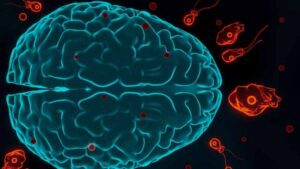
Credit: Unsplash+
High blood pressure is a common health issue affecting one in ten adults and can lead to severe problems like heart attacks and strokes. To manage high blood pressure, many people make lifestyle changes and take medications, with ACE inhibitors, beta-blockers, and calcium channel blockers being among the most popular options.
While these medications help millions of people control their blood pressure, much remains unknown about their side effects. Researchers at Imperial College London aimed to fill this gap by investigating how these drugs interact with the body.
Using a technique that studies genes, the researchers identified which proteins these drugs target to lower blood pressure. They then analyzed the genes of around 750,000 people to find natural versions of these proteins. This allowed them to see if the proteins targeted by the medications could also influence the risk of other diseases.
Their study, which involved data from a large UK cohort, examined the risk for nearly 900 different conditions. To their surprise, they discovered that one type of calcium channel blocker was associated with a higher risk of developing bowel problems, such as diverticulosis. This condition causes small pouches to form in the lining of the intestine, which is more common in older people and can sometimes lead to serious issues.
The researchers believe that the medication might affect how muscles in the intestines work, impacting how food moves through the digestive system. However, they caution against stopping any high blood pressure medication without consulting a doctor, as these findings are still new and need further study.
“This is something of a turn-around in our understanding of these medications,” said one of the researchers. “We always knew they were effective for blood pressure, but now we’re seeing that there might be other risks involved that we need to consider.”
This research sheds light on how blood pressure medications might have unexpected side effects. The study suggests that future research should focus on managing these potential risks while still effectively treating high blood pressure.
In summary, while high blood pressure medications are vital for many people, it is important to be aware of their potential side effects. This study reveals a surprising link between a common blood pressure drug and bowel conditions, highlighting the need for more research. If you have concerns about your medication, it’s always best to talk to your doctor.
If you care about blood pressure, you might want to read studies about blood pressure drugs that may increase the risk of sudden cardiac arrest, and teas that could help reduce high blood pressure. For more information about health, please see recent studies about nutrients that could strongly lower high blood pressure and results showing that a novel antioxidant may help reverse blood vessel aging by 20 years.


